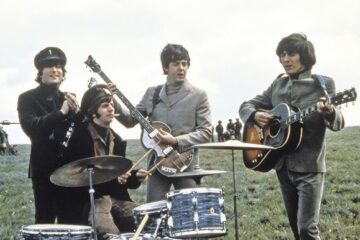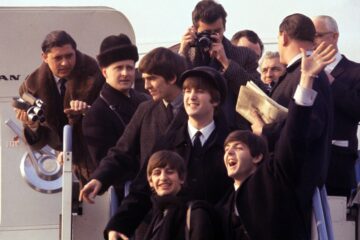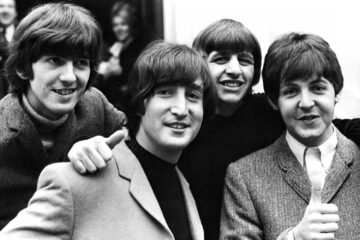The Beatles have countless songs that can be described as “classics”. From ‘Let It Be’ to ‘Here Comes The Sun’ to ‘A Day in the Life’, there are more examples of Beatles songs that have since come to define the musical heritage of the UK and music history in general than perhaps any other band. The group’s mammoth impact on the art of pop music is entirely unquestionable and transcends the songs they made in the studio and the chart-topping positions they grabbed.
That doesn’t necessarily mean that The Beatles members themselves regard all of those songs as classics. One only needs to glance at the quartet’s interviews following the breakup of the group to see the disdain certain members had for certain songs. In fact, I’d be willing to argue that, having played much of their early work innumerable times in concert, John Lennon and Paul McCartney would have been happy to never listen to tracks like ‘Eight Days A Week’ ever again. According to McCartney, the best thing about that 1964 B-side was the title.
During one notable interview, McCartney attempted to dissuade people from the notion that ‘Eight Days A Week’ was in any way a classic of The Beatles’ discography: “When people review my shows, they say, ‘He opened with a Beatles classic, ‘Eight Days a Week,’” Paul said. “I wouldn’t put it as a ‘classic.’ Is it the cleverest song we’ve ever written? No. Has it got a certain joie de vivre that The Beatles embodied? Yes. The best thing about it was the title, really,” he concluded.
The song is certainly not high on the list of most devoted fans’ favourite tracks by the Fab Four. It certainly pops with the vibrancy that made The Beatles the biggest band on the planet, captivating audiences with the effervescent pzazz of a group about to dominate the world. But, in comparison to the rest of their discography, it’s difficult for the tune to match up against their heaviest hitters.
During that same interview, McCartney dismissed the rumour that Ringo Starr had come up with the title. The first origination of the title is believed to be a “Ringoism”, as McCartney explained in 1984: “Yeah, he (Ringo) said it as though he were an overworked chauffeur: (in a heavy accent) ‘Eight days a week’. (Laughter) When we heard it, we said, ‘Really? Bing! Got it!’”
However, the songwriter would soon make his own grab for the title. Eager to get the credit he deserved, McCartney quickly clarified that the song was inspired by a conversation between himself and John Lennon after McCartney had lost his license and had to be driven to Lennon’s house. “Just as we reached John’s, I said, ‘You been busy?’” Paul recalled. “Just small talk. And he said, ‘Busy? I’ve been working eight days a week.’ I ran into the house and said, ‘Got a title!’ And we wrote it in the next hour.”
Written at the very dawn of their career, ‘Eight Days A Week’ captures all the excitement of Beatlemania and the superstardom which followed the group’s relocation to London from their native Liverpool. From Paul McCartney’s description of the inspiration behind the track, it’s clear that they arrived in the swinging city at a moment when liberation was in the air. “Our parents had been rather repressed, and we were breaking out of that mould,” Paul began. “Everyone was let off the leash. Coming down from Liverpool to London, there were all sorts of swinging chicks, and we were red-blooded young men. All that’s on your mind at that age is young women — or it was, in our case.”
The song wasn’t a particular hit with it’s co-songwriter either. Lennon was never afraid to share his thoughts on The Beatles’ early work, and said of the tune: “‘Eight Days A Week’ was never a good song. We struggled to record it and struggled to make it into a song. It was his (Paul’s) initial effort, but I think we both worked on it. I’m not sure. But it was lousy anyway.”
Despite being unpopular with Lennon and McCartney, ‘Eight Days A Week’ reached number one on the Billboard Hot 100, staying on the chart for ten weeks. It established The Beatles as one of the UK’s chief musical exports and cemented the band’s popularity across the Atlantic. It also had a remarkable legacy beyond the time it spent in the charts, with Ron Howard’s documentary of the same name exploring The Beatles’ career around the time of the song’s release. Still, you can’t expect Paul to love it unconditionally, considering he went on to write tracks with as much depth as ‘Eleanor Rigby’ and ‘Yesterday’.




